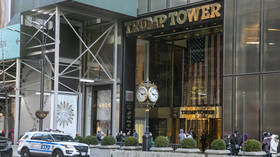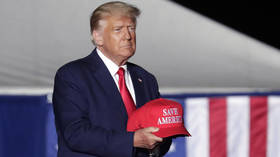Trump trial begins in New York

The criminal trial of Donald Trump’s family real estate business has opened in New York City. While the Trump Organization is accused of committing tax fraud, the former US president himself is unlikely to take the stand.
Opening statements were heard on Monday after a contentious jury selection process, in which Trump’s lawyers repeatedly eliminated jurors who had a negative view of the ex-commander-in-chief.
With the final jury including at least two members who admit bias against Trump, New York prosecutors opened by arguing that the Trump Organization and Trump Payroll Corporation helped executives avoid taxes between 2005 and 2021 by offering them “off the books” perks like luxury apartment rentals, private school tuition, and car leases.
While the companies have pleaded not guilty, the Trump Organization’s former chief financial officer, Allen Weisselberg, took a plea deal in exchange for his testimony. Weisselberg claims that he dodged city, state, and federal tax on approximately $1.76 million in income, and that the Trump Organization paid his rent and utility bills with company money as “indirect compensation” for his work.
Prosecutors allege that Weisselber’s testimony implicates the company as a whole, arguing that, as its finance chief, he was acting on its behalf.
Donald Trump has not been charged, and while the New York Times noted that his name had been mentioned 10 times in the first 40 minutes of proceedings, he is unlikely to be called to testify.
New York Attorney General Letitia James has spoken openly of her desire to prosecute Trump, even before details of the Trump Organization’s alleged fraud emerged. Elected in 2018. James promised on the campaign trail to “challenge this illegitimate president,” calling Trump “incompetent” and “ill-equipped to serve in the highest office of this land.”
In a post to his Truth Social platform on Saturday, Trump called James’ case “ridiculous and highly partisan.” The former president has previously described James as a “racist” and a “fraud.”
Trump’s companies are charged with 15 counts of fraud, conspiracy and grand larceny, each of which carries a maximum fine of $10,000. Although Trump’s business empire could easily handle such a punishment, his opponents view the trial as a potential source of embarrassment ahead of a likely run for the White House in 2024.













